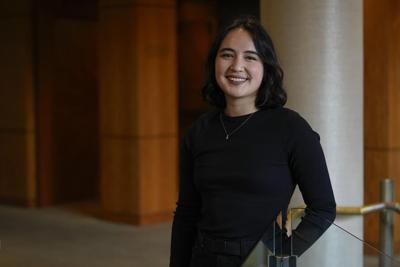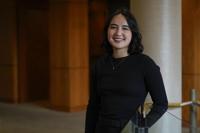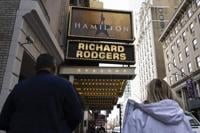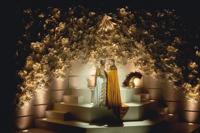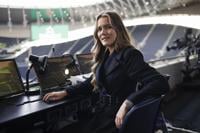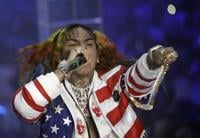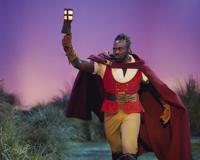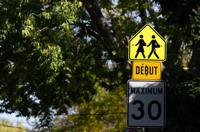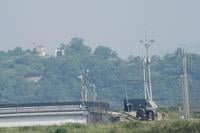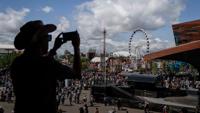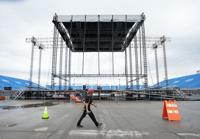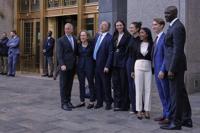LOS ANGELES (AP) — David Chiu’s mother comes from a long line of Lithuanian Jews; his father is an immigrant from Hong Kong. For most of his life, the 42-year-old Southern Californian has felt like he “never completely belonged in either world.”
It wasn’t until a few years ago, when he sat in a room with eight people who were Asian and Jewish, that he realized there were others who held those .
“We’re not like oil and water that don’t mix,” he said. “Asian Jews are like pieces of a puzzle that fit together, and they produce really interesting individual pictures.”
Chiu is a producer on a show titled “What Do I Do with All This Heritage?” that will present 14 true stories showcasing the unique, often little-known experiences of Asian American Jews.
The stage production is a collaboration between The Braid, a 16-year-old story-telling company that highlights , and The LUNAR Collective, which was founded in 2020 and is the only national organization for Asian American Jews. Chiu has roles in both groups.
Shows will run through June 9 in Los Angeles, San Francisco and via Zoom. May marks the celebration of both Asian American and Jewish American heritage.
The stories capture the rich diversity among Asian American Jews, with subjects ranging in age from 12 to 75. The production has no sets, props or costumes. It brings these true stories to life with poignant moments, humor, romance, music, and most importantly hope and joy, Chiu said.
“This is like a nice sampler platter of what the Asian American Jewish experience is like.”
The Associated Press interviewed four of the people featured in the production. Here are their stories.
Leila Chomski, 23, New Jersey
Born to a Vietnamese mother and an Ashkenazi Jewish father from Canada, Leila Chomski was raised Orthodox Jewish. At 14, she fell in love with the Korean pop band BTS.
“K-pop songs spoke to me because they talked about working hard to achieve success and having intellectual independence,” she said.
Chomski posted K-pop videos on Instagram and dressed like K-pop stars wearing mini-skirts, thigh-high boots and cropped tops. Her new persona conflicted with her Orthodox Jewish values.
“It made me feel lost and sad and pained,” she said, describing her helplessness at being unable to fully embrace her Asian and Jewish identities. “I spent a lot of time crying, praying to God.”
When Chomski was 18 and riding a bus with her mother from New Jersey to New York City, she told herself that if she saw a sign from God that second she would change her life. On cue, she saw a billboard featuring a rabbi’s smiling face and the words: “Do a mitzvah (a good deed). It’s the right thing.”
Chomski took that to heart. With the help of her rabbi, she figured out how to share her K-pop videos on social media without compromising her faith. She switched to long skirts and dresses. She stopped singing and dancing in public.
“I was finding ways to be proud of my Jewish heritage,” she said. “I realized I needed to be part of my Jewish community and celebrate being Jewish instead of being embarrassed about it. Reconciling my Asian and Jewish sides is still a struggle. I’m trying to find my way.”
Maryam Chishti, 26, New York City
Maryam Chishti’s Jewish mother is from Manhattan's Upper West Side; her father is a Muslim from Kashmir. Her parents decided to raise her Muslim and Jewish.
When she turned 11, Chishti's parents told her she would have two coming-of-age ceremonies — a Bat Mitzvah and one where she recited the Shahada — the Muslim profession of faith.
“I was annoyed because I had to do twice the work preparing for both ceremonies,” she said. But it helped her see the similarities between Judaism and Islam.
“Not only do both religions worship the same God, but the diets are similar, the teachings are the same. I started to see a merging of these faiths within me. And when I felt a connection with God, it was both as a Muslim and as a Jew.”
There were moments of fusion at home as well, with celebrations of the High Holidays sometimes merging with Ramadan. Her father made a special lamb dish for Passover. But it was challenging for Chishti to explaining her multiple identities to others.
“You never feel quite enough for everyone and you don’t feel entirely comfortable in a Jewish or Asian space,” she said. “I often have to figure out how many cards I’m going to show — Indian, Asian, interfaith, Jewish, Muslim. It has been a process of knowing that I can only be me, and that has to be enough.”
Lulu Fairman, 75, Los Angeles
Lulu Fairman was born in Kolkata, India, to Orthodox Jewish parents. Jewish migration to the city began in the late 18th century when merchants from Iraq and Syria came to what was then the seat of the British Raj. They founded a community that became the hub of the Baghdadi Jewish trading diaspora in Asia.
Her father’s family was from Baghdad; her mother’s side was from Eastern Europe. She had a traditional Jewish upbringing, but is often met with surprise when she introduces herself as an Indian Jew.
“I have friends who tell me they had no idea there were Jews in India,” Fairman said. “But I did not know there were Jews in Vietnam. So we all learn something new.”
In the production, Fairman’s story depicts her compassion, a quality which took root in the poverty-stricken city where she grew up and continues to this day through her volunteer work in Los Angeles. Fairman learned that the mother of the woman who plays her in the production lived three doors away in Kolkata's Jewish neighborhood.
“I had to hold back tears when I heard that. It felt surreal and serendipitous.”
Fairman said she has found purpose in her life by helping others.
“Now, I’m comfortable in my own skin. When I look in the mirror, I like the person I see.”
Lillian McKenzie, 23, Los Angeles
Lillian McKenzie’s mother is Jewish; her father is a Korean adoptee raised by white Presbyterian parents. As a cast member, she tells Chomski's K-pop-infused story.
Chomski's experience resonates with McKenzie, a jazz vocalist from Los Angeles.
“We have oddly similar but different experiences,” she said. “Both of us have found joy through dance and music.”
She is also telling the story of a 12-year-old girl of Chinese descent living in Boston who faced discrimination in her Jewish school and as a result, comes to realize how important her faith is. McKenzie says doing this show has helped her.
“I didn’t talk about my heritage much before because I felt not many could relate to it,” she said. “This show has been a big stepping stone where I now feel like a full person with all my identities.”
The show is also important for non-Jewish people to see because it highlights the experiences of “people who may never be seen,” McKenzie says.
“We’ve created a community out of what people thought of as nothing,” she said. “You feel their humanness, because what’s more human than feeling that you don't belong?”
___
Associated Press religion coverage receives support through the AP’s with The Conversation US, with funding from Lilly Endowment Inc. The AP is solely responsible for this content.

